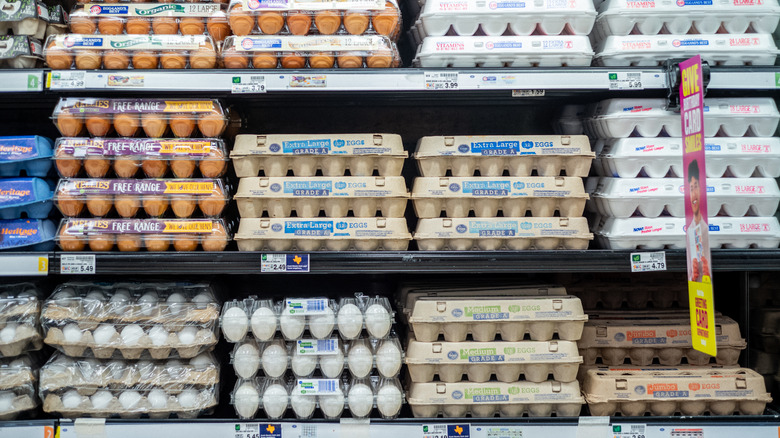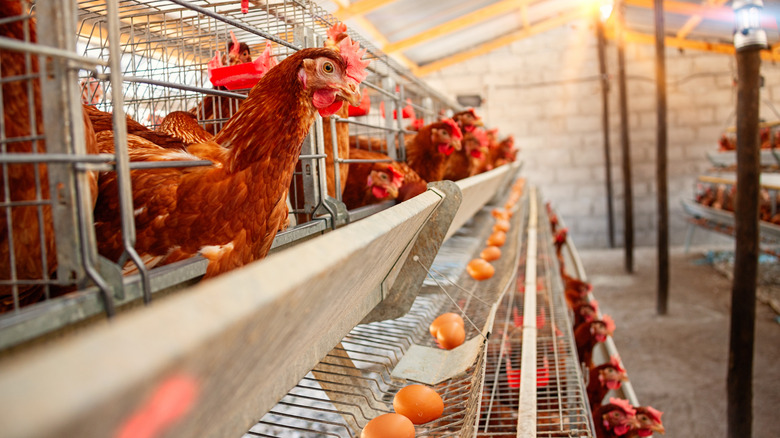Despite Chicken Prices Dropping The Cost Of Eggs Continues To Climb
The cost of chickens and the price of eggs — you would think one would have something to do with the other, but if we've learned anything over the past few years, it's that nature will always have a new surprise in store. Most of the other food news this month has seemed good, as American consumers are finally getting a little relief from rising prices, with the cost of food in October staying almost flat for the first time in months. CNN reports that the price of both fresh fruit and beef fell, and even turkey and poultry prices have started to ease along with them. That's a nice treat as people start to put together their shopping lists for the Thanksgiving and holiday season.
However, amid that mildly good news, egg prices continued to skyrocket. Prices jumped over 10% in October alone for a total rise of 43% the past year, according to the U.S. Department of Agriculture. That puts the average price for a carton of eggs at $3.42. That's bad news for price-conscious consumers as in the past, eggs were a great budget option for filling meals like omelets that wouldn't hurt your wallet. So in a world of improving poultry prices, what is causing egg prices to keep soaring?
Eggs prices have been affected by avian flu
Droughts, war, the lingering effects of a global pandemic — you'd think we would have run out of ways to drive up food prices, but another unexpected disaster is to blame for the cost of eggs. According to CNBC, egg-laying hens have been hit by one of the most severe outbreaks of avian flu in history. Over 50 million birds in the U.S. have been affected by the recent outbreak, leading to the deaths of 37 million, which has dropped egg production capacity by 10% of normal production. Thankfully, the flu has not spread as significantly among chickens raised for meat, which explains the huge divergence we are starting to see in price changes.
In more bad news for breakfast lovers, the price of eggs could continue to stay high, as this strain of bird flu has proven more persistent than past variants. Reuters reports that the disease has spread to a wider number of wild birds, like ducks and geese, and also survived over the summer when warm temperatures normally limit its spread. Along with the fact that bird flu in Europe is also spreading at record rates, this more persistent virus strain means the threat to U.S. poultry and egg supplies is likely to remain high into next year. It looks like your morning will be starting with breakfast cereal for quite a while longer.

